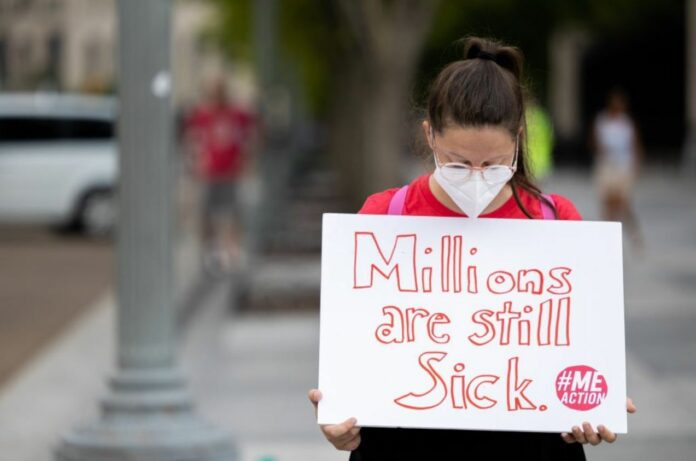New research presented at ECCMID 2023 indicates that the risk of long Covid is significantly lower with the omicron variant of SARS-CoV-2 compared to the original wild-type virus.
A Swiss study found that healthcare workers infected with the wild-type virus were up to 67% more likely to experience long Covid symptoms than those who had not contracted COVID-19.
However, healthcare workers who contracted the omicron variant as their first infection showed no increased likelihood of reporting long Covid symptoms compared to those who had never had COVID-19.
According to the study, contracting the omicron variant after a wild-type infection did not increase the risk of experiencing long Covid or fatigue compared to contracting the wild-type infection alone.
The prevalence of long Covid symptoms in healthcare workers who contracted the wild-type SARS-CoV-2 virus, the omicron variant (BA.1), or both was evaluated by Dr. Carol Strahm from the Division of Infectious Diseases and Hospital Epidemiology at the Cantonal Hospital St Gallen, Switzerland.
The study involved 1,201 healthcare workers, 81% of whom were female, with a median age of 43 from nine Swiss healthcare networks.
The participants were recruited between June and September 2020 and were regularly tested for COVID-19 using nasopharyngeal swabs and antibody tests, and provided information on their vaccination status.
Between March 2021 (Q1), September 2021 (Q2), and June 2022 (Q3), the participants completed online questionnaires in which they reported whether they were experiencing any of the 18 long Covid symptoms.
The most frequently reported symptoms were loss of sense of smell/taste, tiredness/weakness, burnout/exhaustion, and hair loss. The questionnaire also included questions about fatigue levels, and the median follow-up time for wild-type infections was 18 months.
The results showed that in Q1, the risk of long Covid symptoms was 67% higher in the 157 healthcare workers who had the wild-type infection (positive swab) compared to uninfected controls (no positive swab, seronegative).
By Q3, the risk of long Covid symptoms was still 37% higher in those who had the wild-type infection compared to controls.
The findings indicated a similar trend for fatigue. In Q1, those who had the wild-type virus were 45% more likely to experience fatigue than the controls, but by Q3, there was no significant difference between the two groups.
However, the study revealed that healthcare workers whose first positive test for COVID-19 was the omicron variant (429 participants) were not at a higher risk of reporting long Covid symptoms than uninfected controls, and rates of fatigue were comparable between the two groups.
Dr. Strahm suggested that the lower risk of long Covid symptoms and fatigue in omicron cases could be due to a combination of the variant being less likely to cause severe illness and immunity acquired through previous exposure to the virus, such as sub-clinical infection without seroconversion.
Moreover, the research showed that reinfection, or an omicron infection after a wild-type infection, did not increase the risk of long Covid or tiredness compared to a wild-type infection alone.
Among individuals who had omicron following the wild-type virus, immunization had no impact on the risk of long Covid or tiredness.
“While long Covid symptoms seemed to decline over time in healthcare workers who had a wild-type infection, they were still present after 18 months,” adds Dr. Strahm.
“In contrast, healthcare workers whose first positive test was for omicron did not develop significant long Covid symptoms.
“Neither omicron reinfections nor SARS-CoV-2 vaccination before omicron infection had any influence on long Covid.
“With omicron still dominant globally today,” the findings of the study “should provide reassurance to those who are contracting COVID-19 for the first time, as well as those who have already had the wild-type virus.
“It is, however, important to note that the participants in our study were mainly healthy, young, vaccinated women and the results might be different in a sicker, elderly and/or unvaccinated population.”
